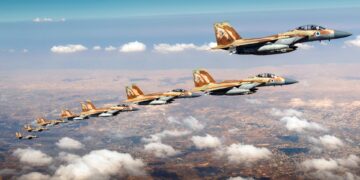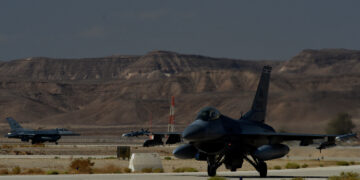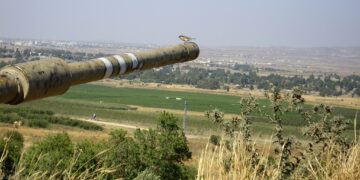January 4, 2024
Baghdad airstrike adds to risks U.S. troops face in Iraq and Syria
FOR IMMEDIATE RELEASE:
January 4, 2024
Contact: press@defensepriorities.org
WASHINGTON, DC—Today, the U.S. carried out a strike which killed an Iran-linked militia commander in Iraq. Defense Priorities Public Policy Manager and Fellow Michael DiMino issued the following statement in response:
“The Biden Administration’s decision to kill a senior Popular Mobilization Forces (PMF) commander in a Baghdad airstrike was ostensibly undertaken to protect U.S. troops from ongoing attacks by Shia militia groups, but it will achieve exactly the opposite.
“In response, the PMF will no doubt redouble their efforts to kill American troops, who have been attacked more than 100 times since October 7th. Our men and women serving in Iraq are now in severe danger for a mission that should have ended years ago, in a country that no longer wants them there.
“Like it or not, over the past decade the PMF has successfully captured the Iraqi government. Iraqi political leaders can only hold office with de facto PMF approval. Sadly, PMF leadership and Iraqi leadership are now essentially the same. So killing PMF leaders may be a tactical success in response to attacks on U.S. troops, but it makes little strategic sense. It will only drive a threadbare but more radical Iraqi government further into Iran’s arms, lead to a purge of the few remaining pro-U.S. holdouts in Iraqi politics, and put America on a trajectory towards open warfare with a PMF-dominated Iraq, which could then ignite a regional war.
“This airstrike also underscores the schizophrenic and unsustainable nature of U.S. foreign policy in Iraq. We provide billions in aid to the Iraqi government, much of which is funneled to Iran in the form of energy payments and then used to fund the PMF, while we conduct airstrikes on their senior paramilitary commanders for attacking our troops. It’s maddening.
“We must stop this vicious cycle. Instead, we should acknowledge that our troops in Iraq and Syria now functionally exist to be attacked by Shia militia groups. They have been on lockdown for months. They aren’t fighting terrorists or deterring Iran. They are sitting ducks. This is not a mission worthy of our service members. The Israel-Hamas War has proven these bases are a strategic liability that provide leverage to Iranian hardliners that want nothing more than to drag the U.S. into a proxy war. Moreover, U.S. national interests in Syria and Iraq are minimal to nonexistent. Any residual counterterrorism efforts there are better achieved with over-the-horizon capabilities and burden-sharing with local actors than a permanent presence.”
More on Middle East
Featuring Jennifer Kavanagh
August 28, 2025
Events on Middle East








